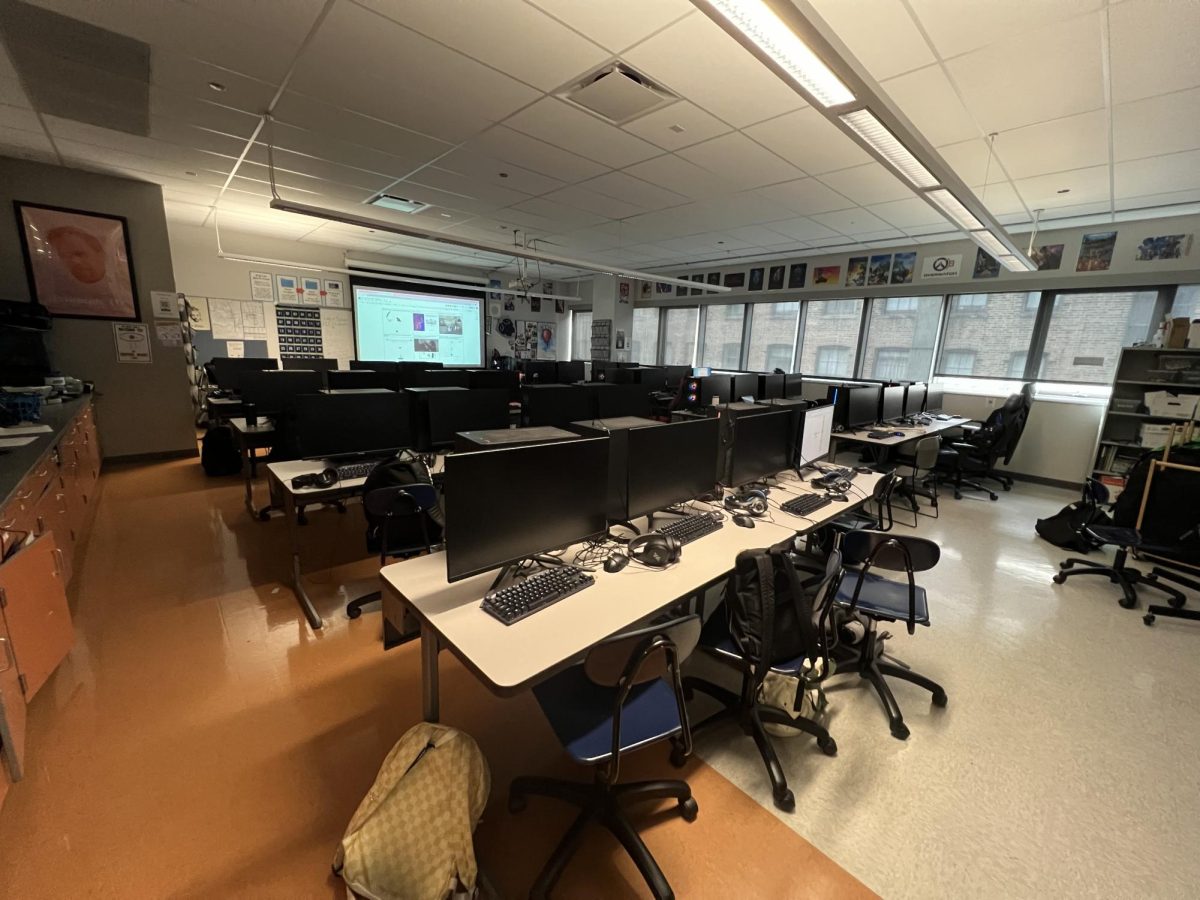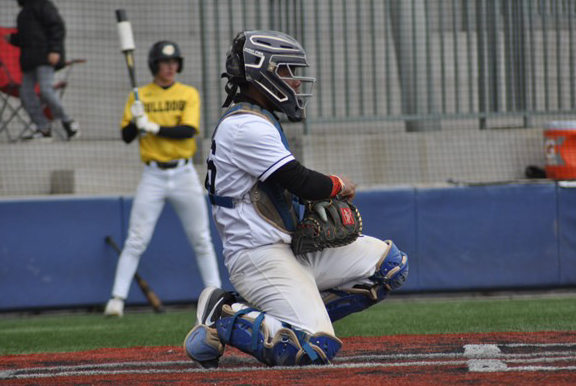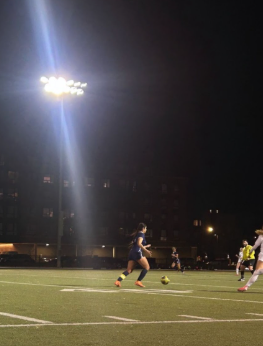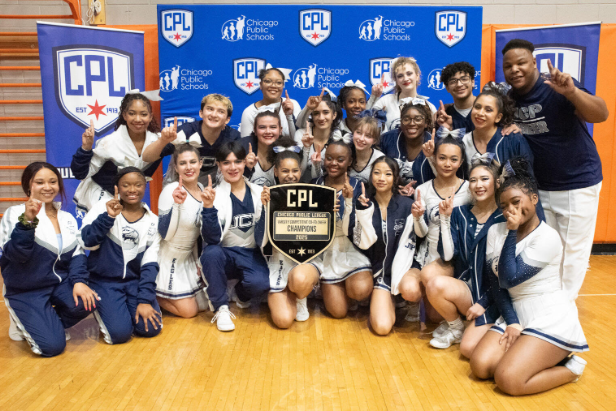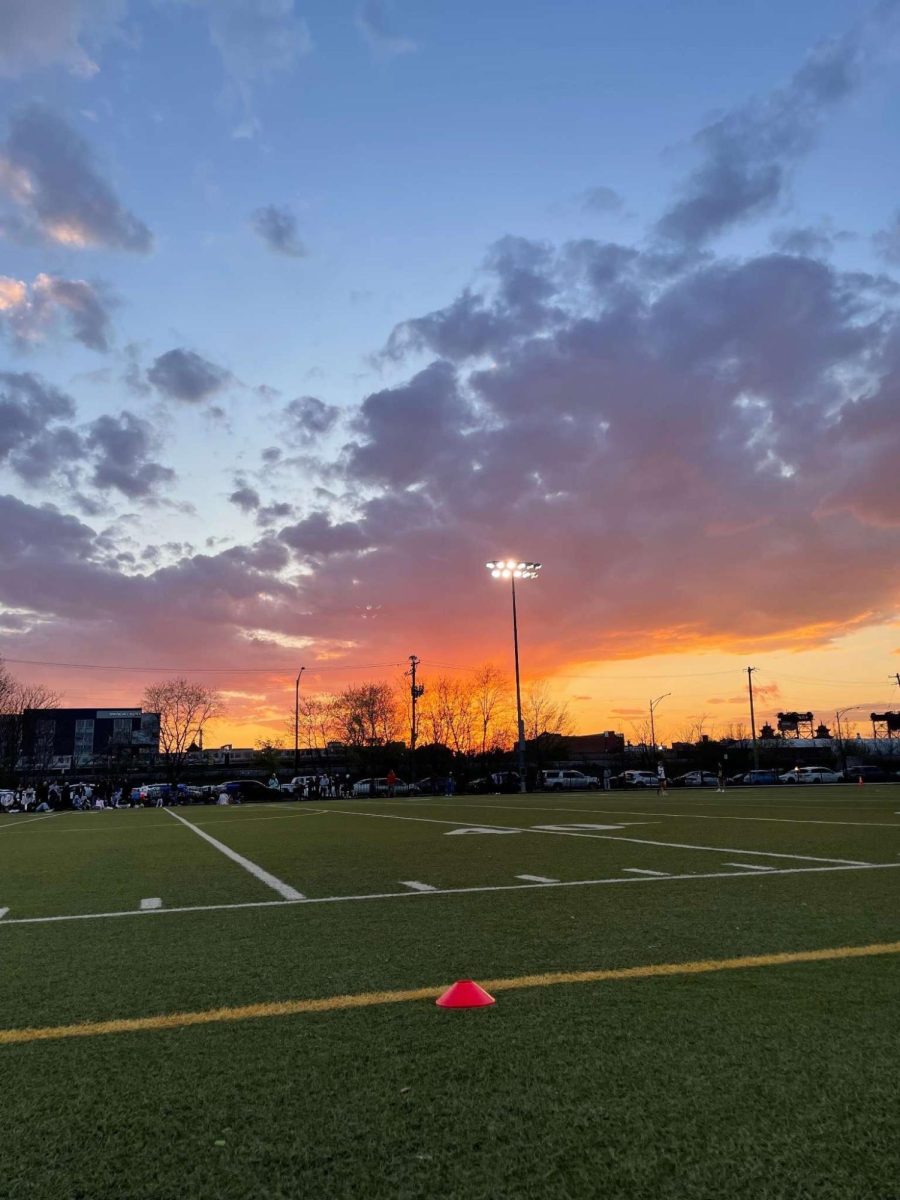The Jones College Prep Esports team is currently in the height of their competition season, with several of their Varsity teams set to play in competitions across the city.
Motivation can be challenging for some players, but it primarily comes from their passion for the game.
“I don’t really follow a specific method to stay motivated and focused; I just play because I genuinely enjoy it, and the fun of the game is what keeps me coming back and putting in the effort,” said Thiberg.
To prepare themselves for competition, the team practices both individually and in groups.
“I definitely prefer team practices over practicing alone because when we come together as a group, we can collaborate on strategies, improve our communication, and it’s a lot more enjoyable playing alongside my teammates rather than solo,” said Mario Kart 8 Captain Pierce Thiberg ‘26
Handling pressure is another aspect of competitive gaming that can be hard.
“One of the biggest challenges I face is not letting myself get too worried about losing; it’s easy to get caught up in the pressure, but I try to remind myself that each match is just one game, and losing doesn’t define me as a player,” said Thiberg.
The Esports team prioritizes communication as a key factor for success.
“A major challenge we often encounter as a team is simply coordinating schedules—everyone has their own commitments, and it’s tough to get the entire team together since not everyone can make it to every practice or game,” said Thiberg.
Kyle Eck, Precalculus teacher and sponsor of the Jones Esports team, also said that consistent practice was important.
“One of the things I always tell the teams is, the more games you can play, the more reps you can get in practice, the better you’re going to be,” said Eck.
Extra practice outside of official matches, especially in Esports, makes a significant difference.
“So I encourage them not just to play that one game a week against another team, but to try to just get in the lab—spend their time in the game as much as they can,” said Eck.
Esports players take responsibility for their own training schedules.
“Our players usually manage their own practice schedule. They’ll practice a lot at home and play the games by themselves,” said Eck.
Although fatigue is common, being part of a team often reignites a player’s motivation.
“We do get players who say, ‘I played this game all season; I’m tired of it.’ Especially with games that evolve so fast… But one thing I find is that being on a team is different from just casually playing the game. You might be tired of Valorant casually, but when you’re playing on a team, it reinvigorates you,” said Eck.
Esports competition days can be intense, requiring players to stay focused for extended periods.
“On game days, it can be a long process. Games can start at 5:00 and go until 7:00 or 7:30 if it’s a best-of-three,” said Eck.
Short gaming breaks are the key to maintaining the gamers’ focus and energy.
“Between games, I encourage the kids to get up, walk around, have a snack—just take care of themselves because it’s a long time to stay focused,” said Eck.
Looking ahead, Eck shared his vision for the future of the program, including giving coaches more oversight and increasing opportunities for casual play.
“In the future,” said Eck, “I’d like to bring the teams a little more into coach control. We also want to run more casual events that require less commitment.”

